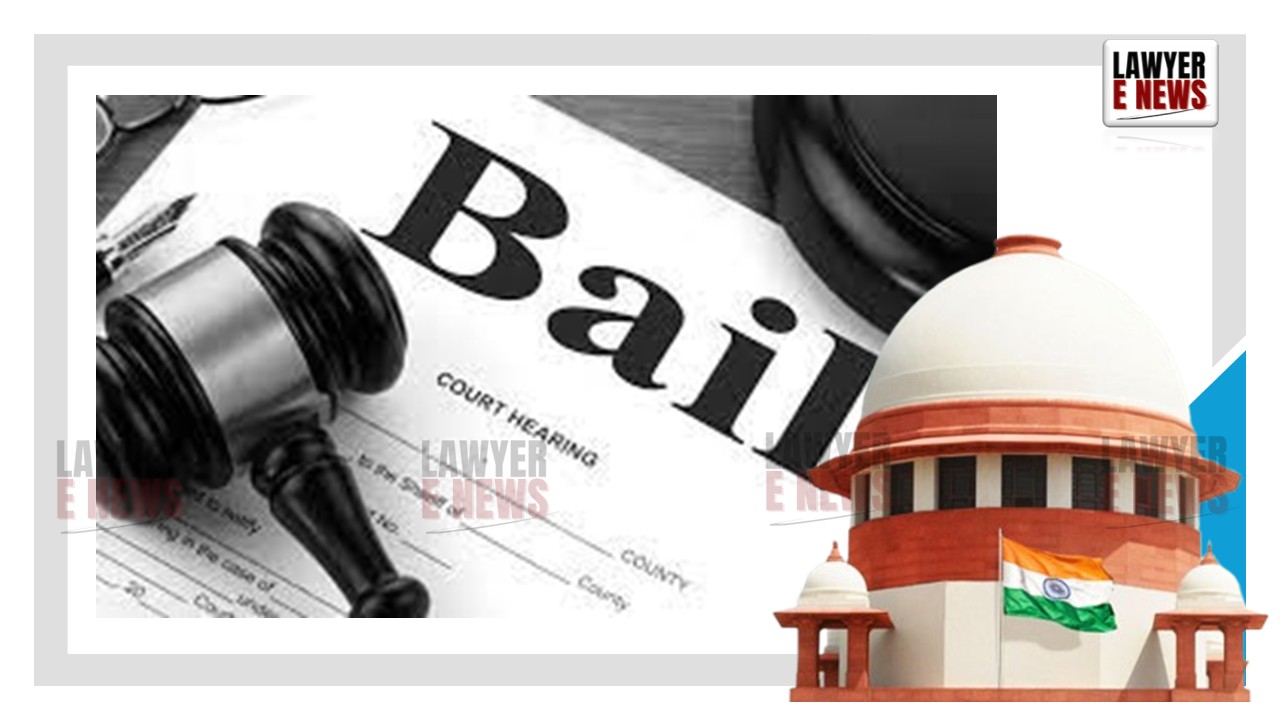-
by sayum
17 February 2026 8:32 AM



“Only 4 Out of 67 Witnesses Examined—Prolonged Incarceration Without Trial Cannot Be Justified Solely on Gravity of Allegations”: In a significant reaffirmation of the right to personal liberty, the Supreme Court granted bail to a man charged under multiple serious provisions, including murder and organized crime. The Court observed that despite the gravity of charges under IPC and MCOCA, the prolonged incarceration of the accused for over four years without substantial trial progress was unjustified. The bench comprising Justices Surya Kant and Nongmeikapam Kotiswar Singh held that “the petitioner has already spent more than four years and three months in custody… the conclusion of trial will, thus, take some time.”
The case involved the abduction and brutal murder of a man named Sachin on the night of 11 December 2020 in Chikhali, Pimpri-Chinchwad. As per the prosecution’s version, Yogesh Sawant and several others barged into the complainant’s home, dragged Sachin out of bed, threatened the family with death, and abducted him. His body was discovered two days later with multiple fatal head injuries. The petitioner, Sunny alias Nakul Kuchekar, was alleged to be a hired goon in Sawant’s organized crime syndicate and was accused of inflicting the fatal injuries. He was arrested on 13 December 2020 and had been in custody ever since.
Charges were framed only after several years, and by the time the matter reached the Supreme Court, only four of the 67 witnesses cited by the prosecution had been examined. The High Court had denied bail based on the severity of the allegations and the accused’s criminal background, prompting the petitioner to move the Supreme Court.
Court's Reasoning: “Delay in Trial Cannot Deny Liberty Indefinitely”
The Supreme Court acknowledged the seriousness of the allegations but emphasized that the accused’s fundamental right to a fair and speedy trial cannot be lost in procedural delays. The Court observed, “It is not in dispute that the prosecution has cited about 67 witnesses… only four have deposed so far,” and concluded that the pace of the trial made indefinite custody unjustifiable.
The Court noted that the petitioner had been in judicial custody for over four years and three months, with trial yet to begin in any substantive sense. “Taking into consideration all the attending circumstances, and without expressing any opinion on the merits of the case,” the Court found it appropriate to direct his release on bail.
“Liberty Is the Rule, Incarceration the Exception—Unless Bail Is Misused”
The Court was mindful of the petitioner’s alleged role in the murder and his ties to an organized crime syndicate, but it placed constitutional values above presumptive guilt. While granting bail, it underscored that the accused must remain under close supervision. It cautioned, “If the petitioner is found involved in tampering with the evidence and/or threatening the witnesses, it shall be construed as misuse of the concession of bail and the State shall be at liberty to move for cancellation.”
The Court made it clear that liberty under Article 21 cannot be curtailed indefinitely, even in serious offences under statutes like MCOCA, unless there is genuine progress in the prosecution’s case.
Granting relief after more than four years of pre-trial custody, the Supreme Court’s ruling underscores the judiciary’s insistence on upholding due process and personal liberty over delay-induced incarceration. The Court’s parting remark left no ambiguity: “The petitioner has already spent more than four years and three months in custody… the trial is far from conclusion… Liberty cannot be suspended merely on the seriousness of charges when delay is systemic.”
Date of Decision: 23 April 2025
